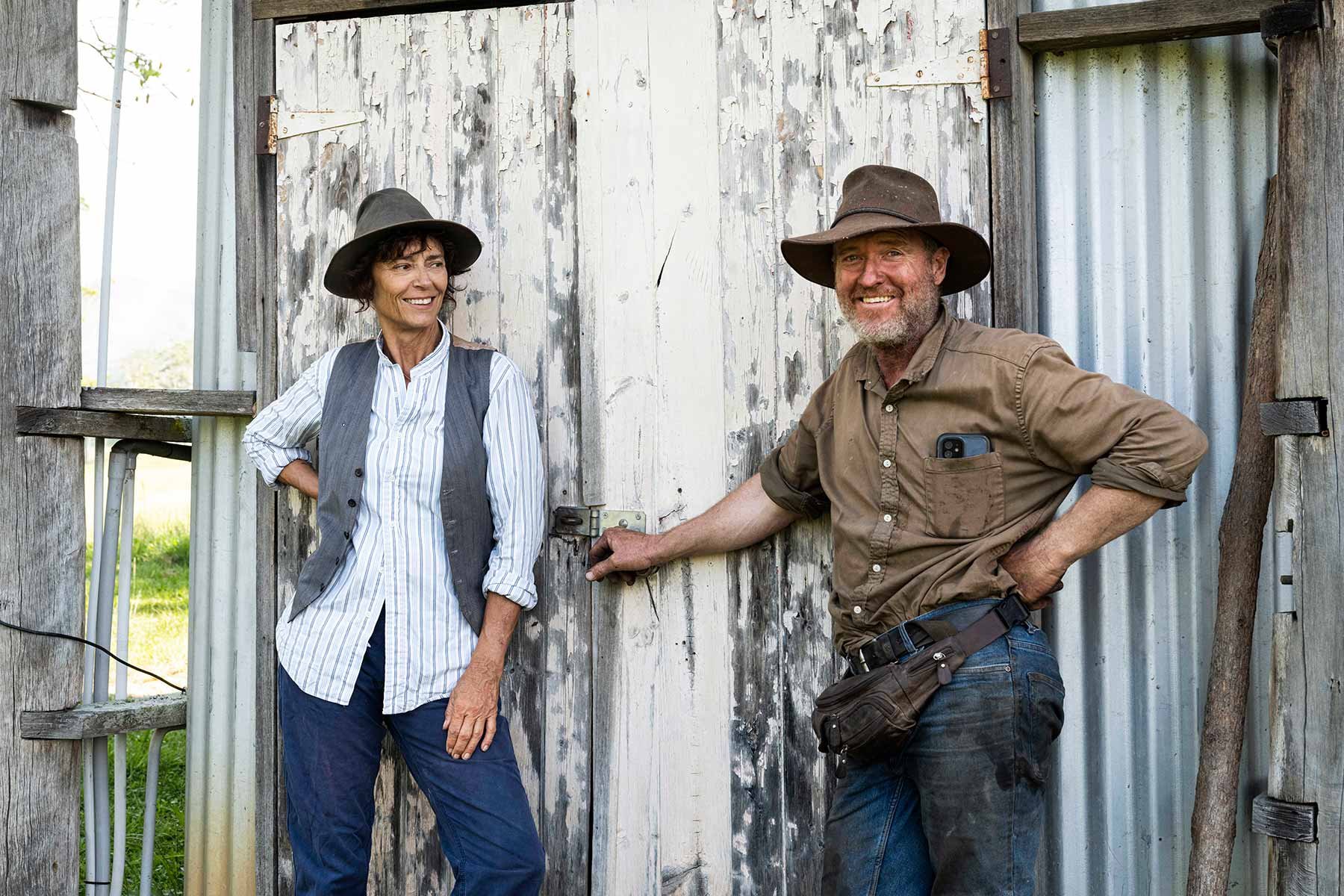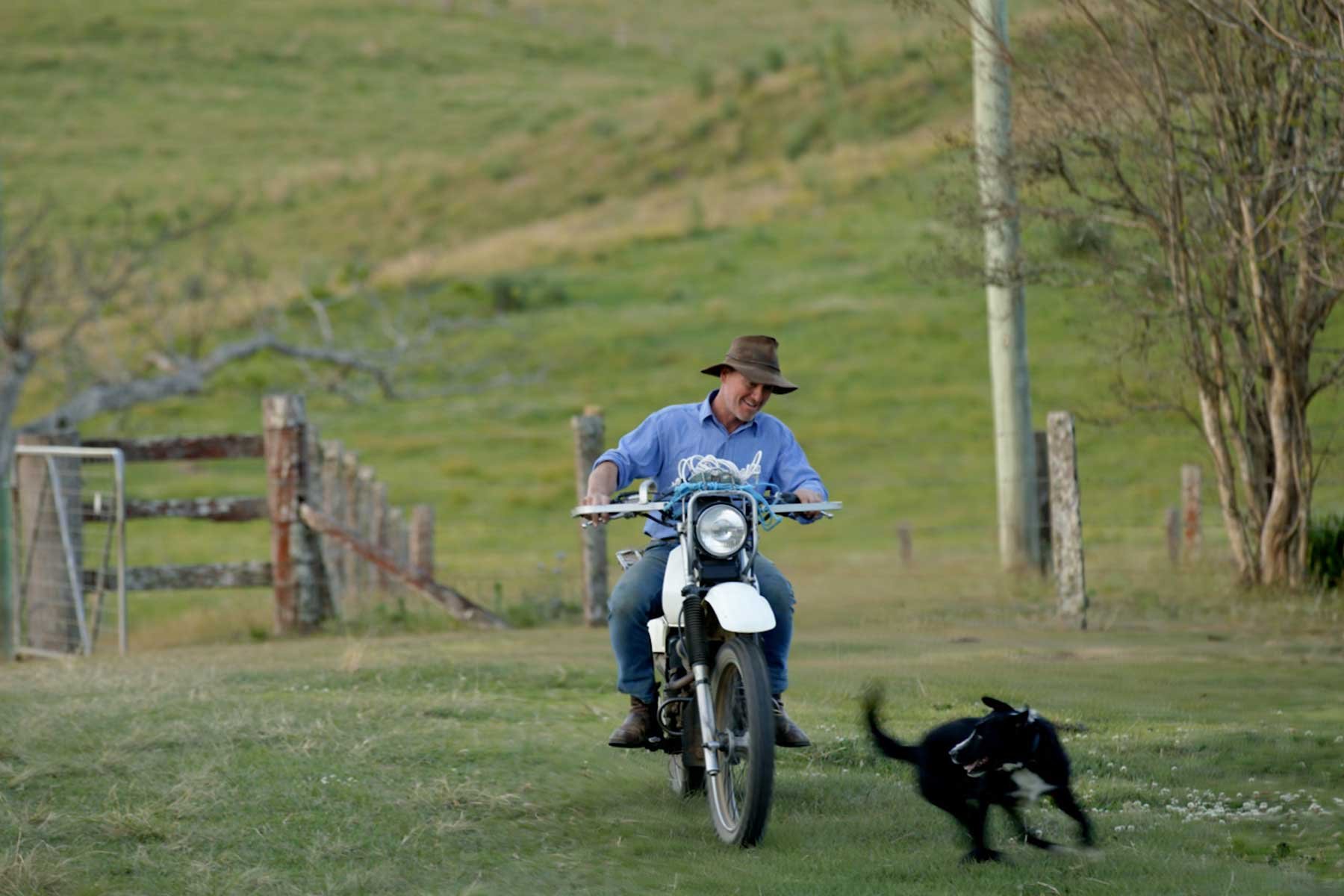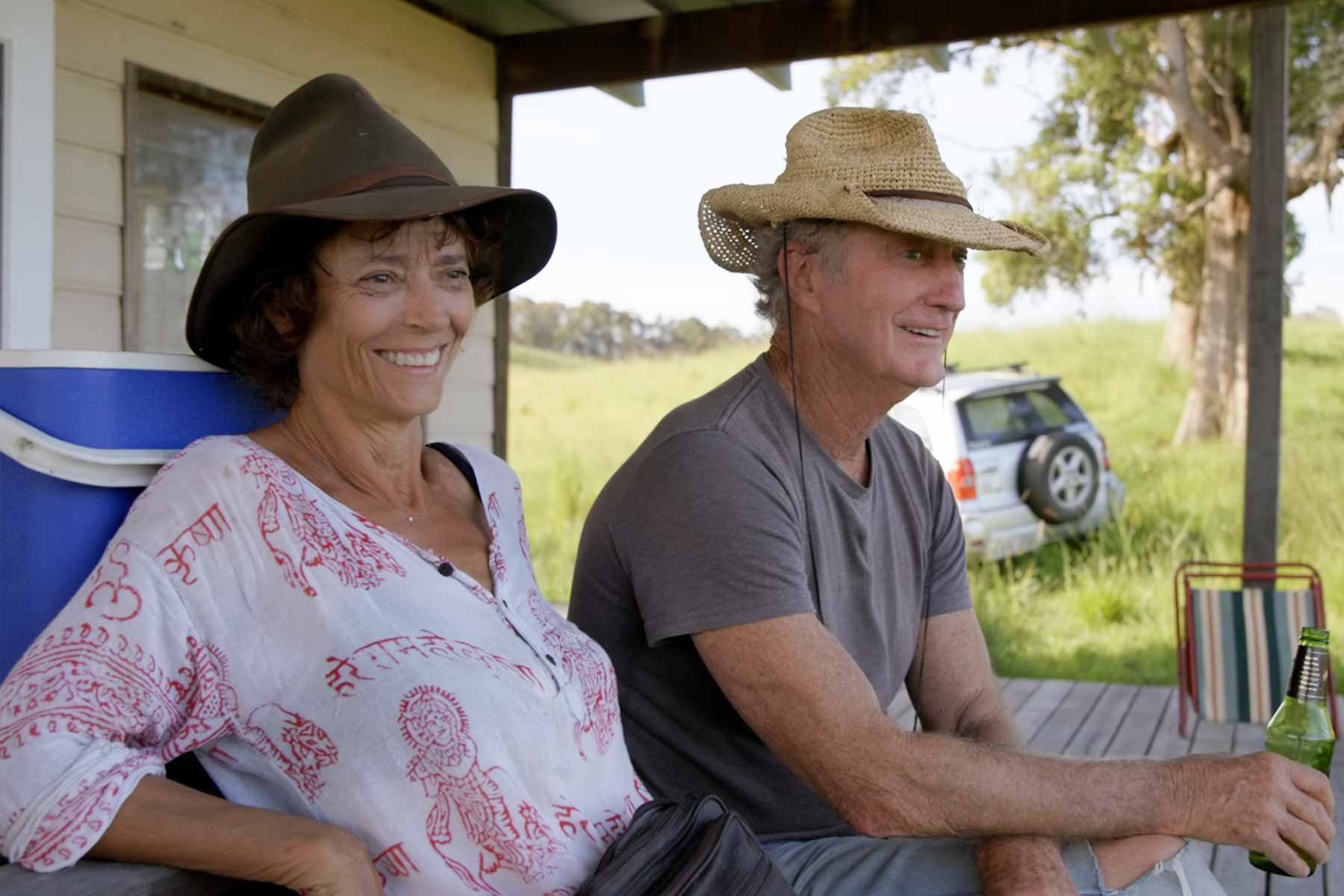Rachel's Farm
What’s Happening in Our Greater Backyard?

One woman’s journey from ecological despair to finding hope in the soil under her feet. Australian actress and film director Rachel Ward has joined the regenerative farming revolution.
In this wonderfully positive film, Rachel journeys from wilful ignorance about the ecological impacts of conventional agriculture on her own rural property, to embracing a movement to restore the health of Australia’s farmland, food and climate.
“My inspiration for Rachel’s Farm came from personally experiencing the Australian Black Summer bushfires in 2019 and subsequently reading Charles Massey's book Call of the Reed Warbler which details the challenges and accomplishments of many early adopters of the regenerative way of farming. I was inspired by the heroics of these farmers' stories, many of whom had gone bust from farming conventionally in ever degenerating soils and increasing droughts before transitioning to regenerative farming practices. Consumed by the country’s devastating destruction, I was suddenly able to move from despair and impotence to action.


As a farm owner, I had a personal story to tell too. During the three year drought, I was forced to buy in feed, then sell half my herd. Then, caught like many in Black Summer fires, I lost all my fencing. Salvation arrived with the introduction of a way of farming more in sync with nature and I was galvanised to take meaningful action, not only with the way I farmed my land, but as a consumer and as a filmmaker.” – Rachel Ward
The film features intimate interviews with Rachel, her family and the people she has been inspired by on her transition from the world of entertainment to the world of farming.
‘Rachel’s Farm’ is for anyone who cares about how their food is produced, how degraded our soils have become, and the changing role of women on farms.


Why Regenerative Agriculture?
The term ‘Regenerative Agriculture’ is used to describe farming practices, that tread more lightly on the planet, help enormously to reverse climate change by rebuilding and restoring soil and soil biodiversity that has been severely degraded. The rebuilding of organic matter increases the living biodiversity within the soil that in turn produces increasingly nutrient-dense food for people to consume. All this while rapidly capturing carbon from the atmosphere to underground to reverse climate change.
The results of regenerative agriculture have been proven time and again, changing farms once again to profitable, fulfilling and thriving ventures. The increased health of the soil brings insect biodiversity which helps manage pest problems too.
According to Regeneration International, “The key to regenerative agriculture is that it not only “does no harm” to the land but improves it, using technologies that regenerate and revitalise the soil and the environment. Regenerative agriculture leads to healthy soil, capable of producing high quality, nutrient dense food while simultaneously improving, rather than degrading land, and ultimately leading to productive farms and healthy communities and economies. It is a dynamic and holistic, incorporating permaculture and organic farming practices, including conservation tillage, cover crops, crop rotation, composting, mobile animal shelters and pasture cropping, to increase food production, farmers’ income and especially, topsoil.”
SCREENING LOCATIONS
_
Featured Project
A big thank you to PADDO LOCAL Magazine for featuring one of our latest projects in Sydney's charming Paddington!
Featured Project
We were excited to see one of our standout projects featured in this month's Belle Magazine.
Inside Out Magazine
We were delighted to see two articles on Adam Robinson Design in this month’s issue of Inside Out Magazine.
Billy Collection
Beautifully crafted to incorporate metal, timber, glass and fabric materials into the design.
Botanicrete
Create your individual sanctuary and feel a connection to nature with this wonderful new ‘living wall finish’ – Botanicrete.
Haldane and Tonic
People do buy plants virtually, not big plants, but smaller seedlings, and they come to you through the post boxed up in a beautiful assortment.
Australian Grown
People do buy plants virtually, not big plants, but smaller seedlings, and they come to you through the post boxed up in a beautiful assortment.
with Plungie
Round plunge pools are on the rise as for many homeowners they make far more sense than big pools as they make good use of space and create a dramatic feature with a modern look.
Ion from the Rakumba Collection
Ion presents a refined, stylish and versatile design choice for fixed mount architectural pendants and bollards.
ARD in House & Garden September 2023
Charming inner-city, heritage terrace in Sydney.
Peter Lewis’ Porter’s Paints
Recently launched Peter Lewis Paints - better for our health and the health of our planet.
Elitis Fabrics
A recently completed commercial project we had the pleasure of working on was The Intercontinental Hotel in Sydney.
Monstera Leaf Platter
Aureliia Collection have launched a stylish outdoor tabletop product range.
Basil Bangs ‘The Lounger’
The Lounger has the charm and nostalgia of a retro piece; warm timber, soft curves, and rounded edges.
French Modern
The Wave chair is available in limited numbers and comes in a black finish.
Australian Ceramicists
All hand made things have something of their maker in them and these stunning Objects of Desire available through Garden Life.
MUD X Frost
Mud Australia has collaborated with Vince Frost to create some yummy typography porcelain numbers.
Extremis
At the Milan Furniture Fair this year Extremis showed off their recent award-winning table, AMAi.
with Artisan Exterior
This month, Adam Robinson and Artisan Exterior presented a panel discussion on the latest outdoor trends followed by a Q & A session for the Landscape Association.
from Coco Republic
The new Navagio outdoor seating collection from Coco Republic is a perfect example of minimal weightiness and is the epitome of style.
by Nathalie Du Pasquier
The BRAC is an artisanal extruded product that is suitable for internal or external walls and structures.
Dine Out
The round tables come with a conical pedestal base with green & white or yellow & white terrazzo and both colourways are stunning.
at Lo & Co
Creamy beige knobs and back-to-back entry handles are now a part of Lo & Co’s stone handle range.
at Lo & Co
Creamy beige knobs and back-to-back entry handles are now a part of Lo & Co’s stone handle range.
from Mokum
South Beach upholstery is a heavy duty luxe fabric which is fire retardant, and stain resistant.
An Alternative
Agrawool Natural Floral Foam appears to be the first product of its kind, that can be described as a more sustainable alternative to traditional floral foam.
Upcycled Concrete
These one-of-a-kind trivets protect fragile surfaces, like your timber dining table or kitchen countertops while at the same time complimenting a variety of domestic settings.
Arrives in Australia
Sought-after Italian brand Poltrona Frau is now available through Australian furniture and design company Mobilia.
The Handsome Zephyr Lounger
New this Spring Summer from TAIT is the very handsome, nautically inspired Zephyr Lounger by Australian designer, Charles Wilson.






























Mud Australia
A sleek, portable, and rechargeable LED light crafted from a single piece of hand-formed porcelain.